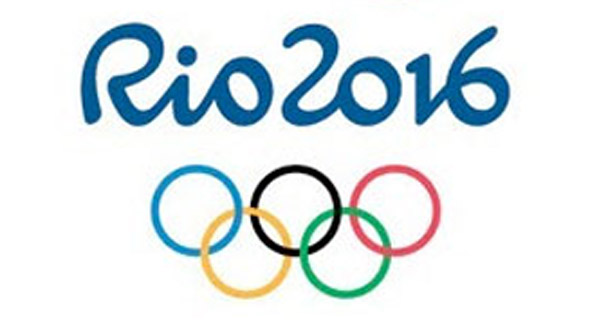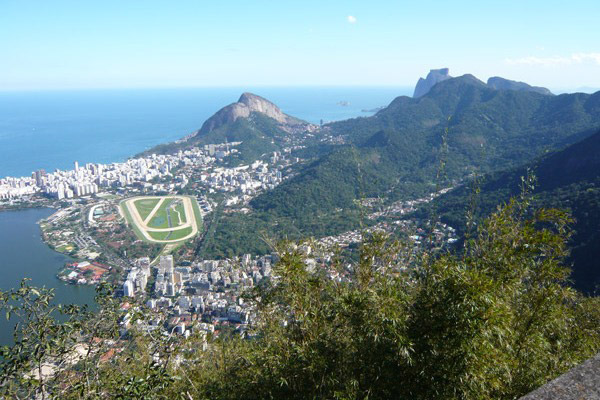Rio 2016 Olympic Games: Beloved Green and Yellow, but where´s the Gold?
Brazil Top Stories
Rio 2016 Olympic Games: Beloved Green and Yellow, but where´s the Gold?
Rio de Janeiro will be the host city of one of the most important international multi-sport events, the next Olympics and Paralympics Games. But will the city actually be ready when 2016 comes around?

Rio 2016 Olympic Games: Beloved Green and Yellow, but where´s the Gold?
Rio is one of the planet’s most impressive cities: it’s where the jungle meets the sea, the lush, green vegetation of Tijuca National Park melting into Ipanema and Copacabana’s intense blue waves, where warm, white sand welcomes bodies of all shapes, sizes and colours.
The sponsor’s posters are up all over town, at every bus stop in the centre and south of Rio de Janeiro the five famous coloured rings with Official Sponsor Rio 2016, Embratel, Sport Connects Brazil, are waiting to greet you, but does getting the sponsor’s posters up 4 years prior to the event mean that Rio will actually be ready when 2016 comes around?
With 100 world leaders and 30,000 official attendees having just descended on Rio for the United Nations Rio +20 Conference on Sustainable Development the simple answer seems to be yes. Apart from the two major airports the entire airspace over the city itself has been closed off for the conference – no helicopters flying over Christ the Redeemer, no hang-gliding or paragliding over Sao Conrado beach – and schools have been closed for all 3 days in an attempt to lessen traffic congestion and provide greater security for everyone. In a report published on the news website folha.com security measures for the UN Conference are said to include: “8,000 members of the Armed Forces; 2,500 Metropolitan Police; 1,000 members of the National Guard; 1,400 Federal Police; 1,400 Highway Patrol; 600 firemen; and an unannounced number of civil police.”
This amounts to half of the security personnel that were mobilized twenty years ago during the 1992 UN Conference on Environment and Development known as Eco-92 also held in Rio. According to General Adriano Pereira Junior, the officer responsible for coordinating security measures for Rio +20, this is because “Rio de Janeiro is living in peace. I believe that now there is less need for police reinforcement.”
The reason why Rio has disappeared from the list of the World´s Top 10 Most Dangerous Cities and why security isn´t seen as the most important issue facing planners for the 2016 Olympic can be accredited to the “pacification” of the city´s “favelas” (slums) which started in 2008. The first step was to send in the BOPE (Special Police Operations Battalion), often under the cover of night with mass shoot-outs but also peacefully once the drug barons had already fled, and the second step was installing the UPP (Police Pacification Unit) to enforce law and order within each community.
Such progress and the fact transport for the Rio +20 Conference is running smoothly bode well for a peaceful and well-coordinated Rio 2016. Moreover the decision to give the master plan design contract to implement a 300-acre Olympic Park to the city´s southwest in the burgeoning Barra da Tijuca area to an English company, AECOM, and plans to revamp the more derelict parts of the harbour side means that Rio itself looks perfectly capable of being a great Olympics Games host.

Also there´s no denying that Rio lives up to the hype of being one of the planet’s most impressive cities: it’s where the jungle meets the sea, the lush, green vegetation of Tijuca National Park melting into Ipanema and Copacabana’s intense blue waves, where warm, white sand welcomes bodies of all shapes, sizes and colours, and where the iconic Christ statue towers, non-judgementally, above rich and poor alike who live incongruously but amicably side by side; concrete shack upon concrete shack piled up the hillsides enjoying the same stunning views as the sprawling mansions surrounding them.
But whilst all signs point to the city of Rio being ready for 2016, what about Brazil´s athletes? Brazil and football are synonymous: with 5 World Cup trophies Brazil is the most famous and successful football team in the game´s history, but astonishingly it has never won an Olympic Gold Medal in football.
Having participated in 37 Olympic Games Brazil is ranked 38th in the world with a medal tally of 91, including a disappointing bronze medal in men´s football at the 2008 Beijing Olympics. So as the 5th largest country in the world, known as a sporting nation with an active, outdoor lifestyle, Brazil´s medal cabinet is surprisingly empty.
In an interview with the founders of LiveWright, a company set up by young entrepreneurs to “help and support sports’ entities professionalize themselves”, it was made clear that winning more medals is not the number 1 priority. The important thing is: “to create structural and perennial changes in sports. It’s not the question of doing something for 2016 and winning medals. It’s okay if we don’t get all the medals, as long as sports become more professionalized, that we enact structural change. We also want to create models for sports; we have a few right now, but we think we can have many”.
In a bid to try and better prepare its team members for 2016 the British Olympic Committee (COB) recently announced that it will take 16 of Brazil´s most promising young athletes to the 2012 London Olympics this July to give them a taste of the atmosphere and the pressure involved in competing in an Olympic competition and no-one would deny that gaining at least one gold medal as the 2016 host venue would be icing on the cake.
Many critics are warning that Brazil needs to be careful of becoming a victim of its own success and are predicting that post-Olympics Brazil will spiral into an economic downfall like the one experienced by Greece after the 2004 Games – with taxpayers still paying for the unknown sum of money injected into hosting the Games, now cited as the reason why the country is currently in financial trouble – but Brazil is not Greece and Rio is not Athens. Greece can fit inside Brazil almost 65 times over, giving some idea of Brazil’s immensity and with its still untapped tourist potential and its booming economy – much of which is self-sufficient, due to relative internal peace and government measures to better deal with poverty having spawned a 40 million strong middle class – Brazil is set to keep on growing.
In terms of tourism generated by the Olympics, the Ministry of tourism is predicting that “80 thousand tourists will visit the country. Over the course of the year 2016, 7.9 million foreign visitors are expected” representing huge growth over the next four years but this is not seen as the climax, with stadiums being left to gather dust afterwards, like in Greece, this is seen as a new beginning. Brazil just needs to give the outside world a taste of its riches during the Olympics and then the spiral is forecast to go up rather than down. According to Aldo Rebelo (Sports Minister): “There will be sustained tourism after the Cup and the Olympics: the positive image of Brazil will reach all corners of the planet.”